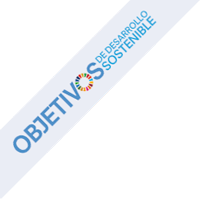
Ildefonso Camacho, president of Loyola Andalucía University and the ETEA Foundation, accompanied by José Manuel Martín and Michela Accerenzi, director and regional coordinator of the foundation, respectively, have toured the Honduran country to visit the various interventions that the foundation carries out in the territory and to meet the partner institutions with which it has maintained a long history of collaboration.
Meetings with institutional partners
The representatives of Loyola-ETEA Foundation met with representatives of partner institutions such as Osman Ordoñez, manager of the Agency for Local Strategic Development of Santa Rosa (ADELSAR), who together with the deputy mayor of Santa Rosa de Copán, Reyna Pérez de Alvarado, expressly recognized the contribution of the academic institutions of Cordoba to the issue of decent employment and local development, expressing the intention to maintain inter-institutional collaboration for the economic development of the municipality. In this regard, it is worth mentioning that the ETEA Foundation is a partner of the Mesa por el Empleo, a public-private consultation space in which the Citizen Commission for Economic Development, ADELSAR, the Municipality, the Secretariat of Labor and Social Security, the Chamber of Commerce and the Escuela Técnica de Artes y Oficios del Occidente (Technical School of Arts and Crafts of the West participate.
Another key local partner in the territory has been Casa Hogar, the only shelter for women victims of gender-based violence in western Honduras. Ildefonso Camacho met with Maria Jesús Ramírez, Erika López and Reyna Perez de Alvarado, representatives of the organization’s Board of Directors, and Lorena Reyes, director of the Municipal Women’s Office, to discuss the impact of the collaboration between the different entities, which began in 2014 with a project funded by the European Union, and the intention to continue formulating joint actions for the prevention and care of gender-based violence.
Likewise, Adolfo Martínez, director of the Honduran Foundation for Agricultural Research (FHIA), another strategic partner in the territory, received Ildefonso Camacho to personally express his satisfaction regarding the collaboration with Fundación ETEA. Dr. Martinez explained the great potential of the Honduran cocoa market and the need to support this sector. Like the other partners, he expressed the hope to continue cooperating in the future of rural development in the region.
7 projects in Honduras
In addition to the inter-institutional meetings, Ildefonso Camacho had the opportunity to talk directly with the project technicians about the processes underway and the Foundation’s presence in the field. The technical manager of each of the seven projects currently being implemented in Honduras officially presented the main elements of each intervention, namely: two projects implemented in Marcala, one on coffee production and the other on participation and improvement of economic opportunities for the Lenca population; two food and nutritional security projects, one in the departments of Lempira and Ocotepeque, the second in the Trifinio region; a project for the installation of a micro-hydroelectric plant to provide electricity to a village of some 42 families; a rural development project with the cultivation of cocoa in sustainable agroforestry systems; and a project for prevention and attention to gender violence.
As part of the tour, Ildefonso Camacho and José Manuel Martín went to La Labor to visit the Mancomunidad Güisayote building, which was built thanks to the contribution of the agreement financed by AECID and executed by the consortium of Spanish NGODs CESAL and COPADE, together with the ETEA Foundation. In addition to representatives of these institutions, meetings were held with representatives of the Mancomunidades Güisayote, Mancomunidad Valle de Sensenti (MANVASEN) and Mancomunidad Suroeste de Lempira (MANCOSOL), three local partners of the agreement, whose main objective is to improve the food and nutritional security of the population of this territory.
A visit was also made to the COCAFELOL coffee cooperative. This cooperative was initially the beneficiary of a project in the coffee sector and later became a partner in three projects implemented by the ETEA Foundation. The cooperative is a clear example of successful cooperation. Not only did it become sustainable with the projects, but it has continued to innovate and grow over the last three years, becoming one of the most innovative and environmentally sustainable companies in the country.
Finally, the tour of the Honduran country ended with a visit to the municipality of Gracias, where José Luis Cárdenas, AECID project coordinator, showed the representatives from Córdoba some of the results of bilateral cooperation in western Honduras.
Previous visit to El Salvador
Prior to the successful Honduran tour, Ildefonso Camacho and José Manuel Martín had traveled to El Salvador to meet with the Secretary General of the Central American Integration System (SICA), Dr. Victoria Marina Velásquez de Avilés, an institution with which the Foundation has maintained a long history of support in the integration process, especially in academic training activities promoted in the Central American region.
In this regard, the Secretary referred to the SICA Training Program, which develops training processes and knowledge generation on Central American integration, which respond to the 5 pillars of SICA: economic integration, social integration, democratic security, risk management and climate change and institutional strengthening, defined at the Summit for the Relaunching of the System in 2010.


